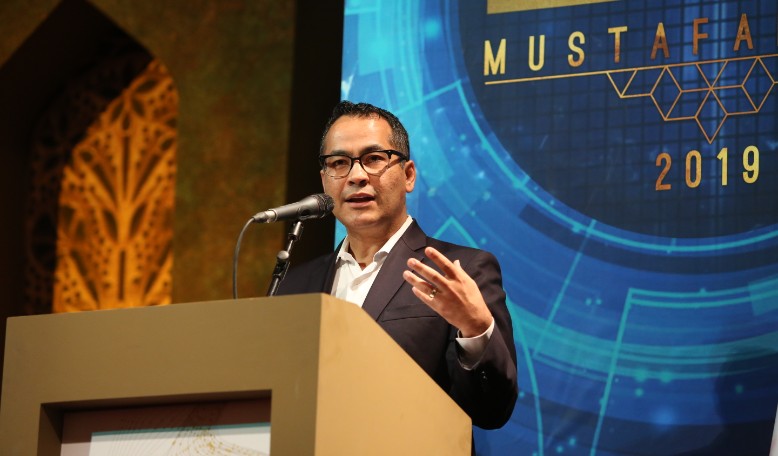COVID-19: 2019 Mustafa(Pbuh) Prize laureate to head new sensing technology development
The 2019 Mustafa(Pbuh) Prize laureate in an interview with the MSTF announced that he and his team aim at developing new types of sensing technology to curb Coronavirus.
MSTF Media reports:
Ali Khademhosseini, CEO of Terasaki Institute, USA, and a 2019 Mustafa
Prize laureate, said that in order to contribute to the current global health crisis, he and his team are attempting to “focus on projects related to sensing and scale up sensing approaches.”
“We have also been attempting to perform some projects on better mask designs or new materials that can be used for it,” he continued.
He highlighted the importance of scientific collaboration in the current pandemic, stating that “to a large degree it’s happening in a very unprecedented and positive way. Different people from different countries are involved” in combating COVID-19 together.
“So, collaboration in this sense is very important, particularly for trying to move fast with diagnostics and therapeutics for this disease,” he added.
Asked how biomedical engineering can contribute to COVID-19 research networks, he said it is “very integral to this whole process.”
Khademhosseini pointed to the key role of bioengineering-type technologies in RT-PCR and serological testing. He also underscored the significance of biomedical engineering in vaccine development.
Biomedical engineering is important “not just for identifying the appropriate vaccine, but also for scaling up its production and being able to make the millions and billions of doses that are needed worldwide,” he said.
Regarding the change COVID-19 makes to the course of future research in the field of health sciences and technologies, he maintained that “there is going to be a much more emphasis given to these types of pandemics, particularly given that this is by no means the end of these kinds of viral pandemics.”
According to Khademhosseini, the facilities for testing as well as vaccine development and some of the processes associated with that will be taken a lot more seriously. Moreover, there will be a lot more resources dedicated to preventing and monitoring the spread of disease, “so that we will be able to respond even faster to such issues,” he added.
He also pointed to the social change that the current pandemic will bring about, asserting that “social distancing may cause some cultural differences in the future.”
Nowadays, many people working from home have found out that “they can become a lot more efficient working through some of these at-home technologies,” he said.
So, this “is going to make changes culturally and with respect to professional things down the road,” he continued.
Referring to the educational opportunities that current remote instructions can provide, he said that “with respect to technology development and adoption, this pandemic has really pushed that area forward much faster than it would normally.”
Khademhosseini stated that “the good thing about doing research is that there are many different aspects of it that are beyond lab work.”
He then emphasized the crucial role of writing in conducting research, saying that “after coming up with good ideas and significant breakthroughs, writing is really important, yet most people do not appreciate it as much as they should.”
“So, being able to focus on some of writing approaches would be very beneficial to university students and researchers during the current pandemic,” he added.
Ali Khademhosseini is a professor of Bioengineering, Chemical and Biomolecular Engineering at UCLA, USA. He was awarded the 2019 Mustafa
Prize in the field of Life & Medical Science and Technology for his achievement in Nano and Micro Fabricated Hydrogels for Biomedical Applications.

